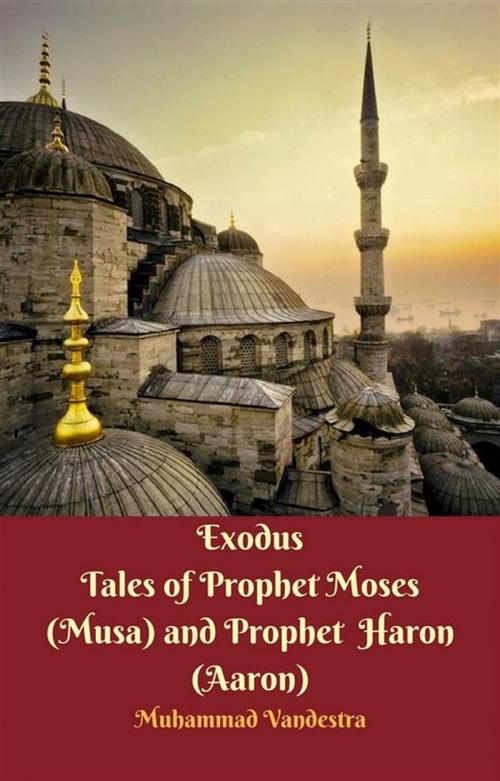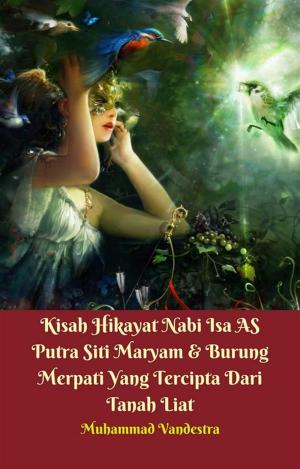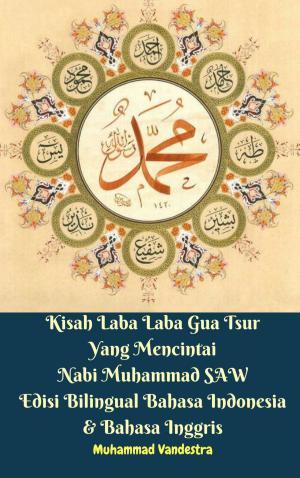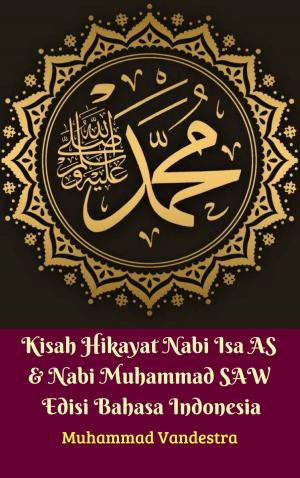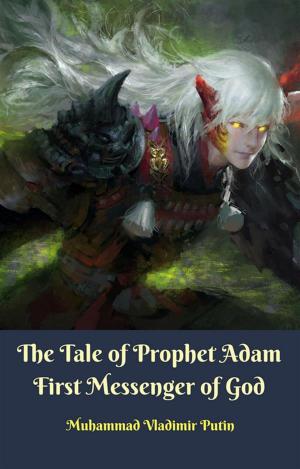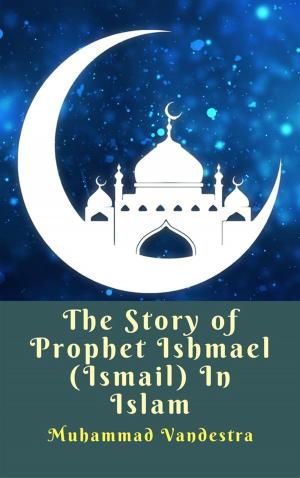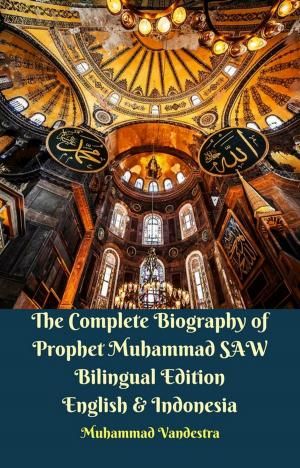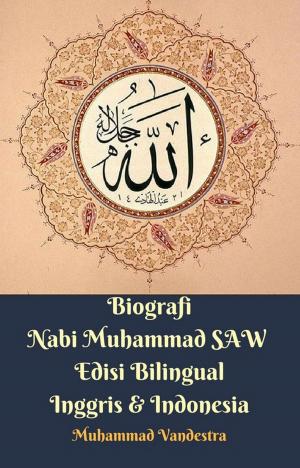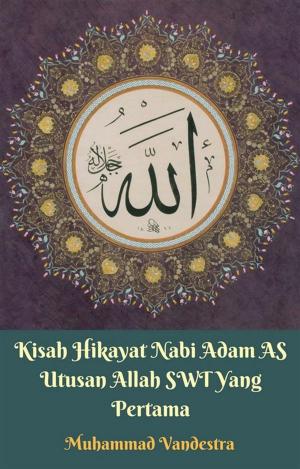Exodus Tales of Prophet Moses (Musa) & Prophet Haron (Aaron)
Nonfiction, Reference & Language, Education & Teaching, History, Science Fiction & Fantasy, Historical, Fantasy, Epic Fantasy| Author: | Muhammad Vandestra | ISBN: | 9781370688739 |
| Publisher: | Dragon Promedia | Publication: | November 26, 2017 |
| Imprint: | Language: | English |
| Author: | Muhammad Vandestra |
| ISBN: | 9781370688739 |
| Publisher: | Dragon Promedia |
| Publication: | November 26, 2017 |
| Imprint: | |
| Language: | English |
The pharaoh who ruled Egypt was a tyrant who oppressed the descendants of Prophet Jacob (pbuh), known as the children of Israel (Bani Israel). He used every means to demean and disgrace them. They were kept in bondage and forced to work for him for small wages or nothing. Under this system the people obeyed and worshipped the pharaoh, and the ruling class carried out his orders, thereby authorizing his tyranny and crazy whims.
The pharaoh wanted the people to obey him only, and to believe in the gods of his invention. Perhaps, during that time, there were many classes of people who did not believe in or practice polytheism; however, they kept this to themselves and outwardly did as they were expected to do, without revolting or revealing themselves to anyone.
Thus, successive dynasties came to Egypt and assumed that they were gods or their representative or spokesmen. Years passed, and a despotic king, who was adored by the Egyptians, ruled Egypt. His king saw the children of Israel multiplying and prospering. He heard them talking about a vague vision that one of Israel' s sons would dethrone the pharaoh of Egypt. Perhaps this vision was only a daydream that persisted within the hearts of the persecuted minority, or perhaps it was a prophecy from their books.
Another tradition states that it was Pharaoh himself who had the vision. Ibn 'Abbas narrated: "Pharaoh saw in his vision a fire, which came from Jerusalem and burned the houses of the Egyptians, and all Copts, and did not do harm to the children of Israel. When he woke up, he was horrified. He then gathered his priests and magicians and asked them about this vision. They said: "This means a boy will be born of them and the Egyptian people will perish at his hands.' That is why Pharaoh commanded that all male children of the children of Israel be killed."
Either way, this vision reached the ears of the Pharaoh. He then issued a decree to slay any male child that would be born to the children of Israel. This was carried out until the experts of economics said to Pharaoh: "The aged of the children of Israel die and the young are slaughtered. This will lead to their annihilation. As a result, Pharaoh will lose the manpower of those who work for him, those whom he enslaves, and their women whom he exploits. It is better to regulate this procedure by initiating the following policy: males should be slaughtered in one year but spared to live the next year." Pharaoh found that solution to be safer economically.
Moses's mother was pregnant with Prophet Aaron (pbuh) in a year that boys were spared; thus she gave birth to the child publicly and safely. During a year in which boys were to be slain, she gave birth to Prophet Moses (pbuh); thus his birth caused her much terror. She was afraid he would be slain, so she nursed him secretly. No sooner had the divine revelation finished that she obeyed the sacred and merciful call. She was commanded to make a basket for Moses. She nursed him, put him into the basket, then went to the shore of the Nile and threw it into the water. Her mother's heart, the most merciful one in the world, grieved as she threw her son into the Nile. However, she was aware that Allah was much more merciful to Moses than to her, that He loved him more than her. Allah was his Lord and the Lord of the Nile.
The pharaoh who ruled Egypt was a tyrant who oppressed the descendants of Prophet Jacob (pbuh), known as the children of Israel (Bani Israel). He used every means to demean and disgrace them. They were kept in bondage and forced to work for him for small wages or nothing. Under this system the people obeyed and worshipped the pharaoh, and the ruling class carried out his orders, thereby authorizing his tyranny and crazy whims.
The pharaoh wanted the people to obey him only, and to believe in the gods of his invention. Perhaps, during that time, there were many classes of people who did not believe in or practice polytheism; however, they kept this to themselves and outwardly did as they were expected to do, without revolting or revealing themselves to anyone.
Thus, successive dynasties came to Egypt and assumed that they were gods or their representative or spokesmen. Years passed, and a despotic king, who was adored by the Egyptians, ruled Egypt. His king saw the children of Israel multiplying and prospering. He heard them talking about a vague vision that one of Israel' s sons would dethrone the pharaoh of Egypt. Perhaps this vision was only a daydream that persisted within the hearts of the persecuted minority, or perhaps it was a prophecy from their books.
Another tradition states that it was Pharaoh himself who had the vision. Ibn 'Abbas narrated: "Pharaoh saw in his vision a fire, which came from Jerusalem and burned the houses of the Egyptians, and all Copts, and did not do harm to the children of Israel. When he woke up, he was horrified. He then gathered his priests and magicians and asked them about this vision. They said: "This means a boy will be born of them and the Egyptian people will perish at his hands.' That is why Pharaoh commanded that all male children of the children of Israel be killed."
Either way, this vision reached the ears of the Pharaoh. He then issued a decree to slay any male child that would be born to the children of Israel. This was carried out until the experts of economics said to Pharaoh: "The aged of the children of Israel die and the young are slaughtered. This will lead to their annihilation. As a result, Pharaoh will lose the manpower of those who work for him, those whom he enslaves, and their women whom he exploits. It is better to regulate this procedure by initiating the following policy: males should be slaughtered in one year but spared to live the next year." Pharaoh found that solution to be safer economically.
Moses's mother was pregnant with Prophet Aaron (pbuh) in a year that boys were spared; thus she gave birth to the child publicly and safely. During a year in which boys were to be slain, she gave birth to Prophet Moses (pbuh); thus his birth caused her much terror. She was afraid he would be slain, so she nursed him secretly. No sooner had the divine revelation finished that she obeyed the sacred and merciful call. She was commanded to make a basket for Moses. She nursed him, put him into the basket, then went to the shore of the Nile and threw it into the water. Her mother's heart, the most merciful one in the world, grieved as she threw her son into the Nile. However, she was aware that Allah was much more merciful to Moses than to her, that He loved him more than her. Allah was his Lord and the Lord of the Nile.
